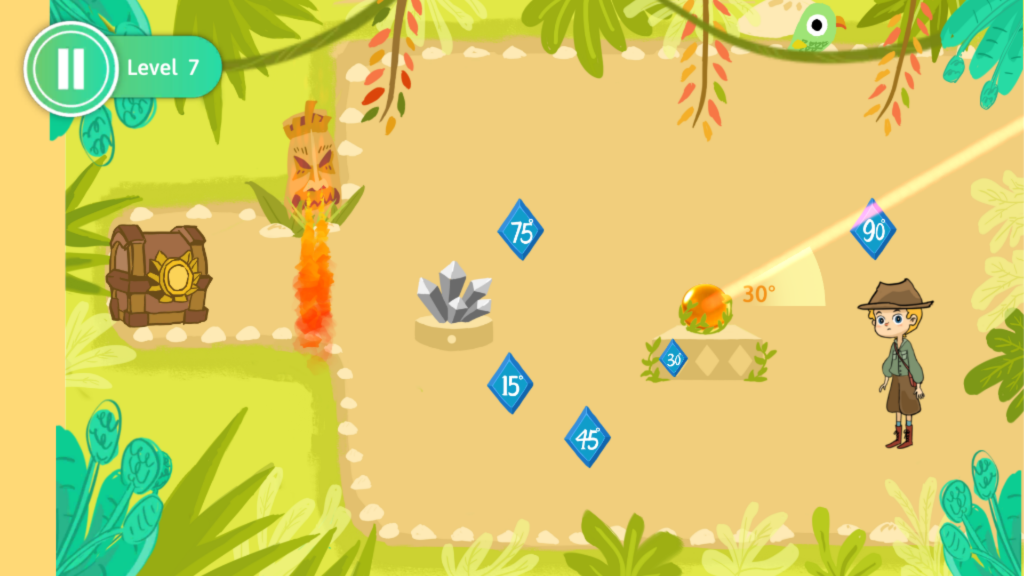
Tools
Zoom, Angle Jungle, Twitch
Methods
Learning Science, Educational Games Research, Pre/Post Testing, Controlled Experiments, Autoethnography
Timeline
September 2020 – April 2021
Overview
The Educational Game Streaming project is looking to bridge together innovations in streaming interface design with ICAP learning theory to create the next-generation supportive learning, game streaming interfaces.
Problem
Since COVID has rocked the world, the livestreaming industry has been booming. For example, Twitch has seen a 100% growth in hours watched in 2020 as compared to 2019. As the world continues to be more enmeshed with technology, digital games have also become a cornerstone of both social interaction and remote education for many people. The Educational Game Streaming project explores how to improve live streaming interfaces in order to bring more engaging and participatory educational experiences for viewers.
With the growth of live streaming and remote education, many livestreamers are trying to figure out how to increase participation and community engagement. With the possibilities of existing and future technology, to just watch a stream with a chat window is frankly bland. The Educational Game Streaming project is moving towards designing a future where livestream interactions go beyond what has been currently imagined, whether it be for building a better live streaming interface or for learning and entertainment.
Team
The project is spearheaded by Noor Hammad is a PhD student at Carnegie Mellon University’s Human-Computer Interaction Institute. Working with a small team of five, she not only researches, but also mentors a couple of MHCI students. She joined the Educational Games Streaming project due to her extensive background studying games and participatory design. She came onboard the project because it allows her to learn and utilize a variety of different skills, including technical skills, game design, mentoring, and qualitative and quantitative methods.
Research
So far, the team has spent a great deal of time researching educational theories, streamers, APGs (audience participation games). The team has also conducted autoethnography studies on Twitch streamers to answer questions about what they do during live streams, the tools they use, and how they interact with their audience. More specifically, they interviewed live coders and educational game streamers to get a better understanding of how education maps into the context of live streaming.
Currently, the team is designing a learning study that compares the learning outcomes of a game called Angle Jungle, a geometry game made by CMU students in 2017 to teach adolescents about angles. For this study, they will be working with middle schoolers from The Ellis School in Pittsburgh. The participants will either play the game normally or watch it being played on a live stream.
Testing is scheduled to begin in April. This study will run for the entire Spring 2021 semester to help the team understand the current shortcomings of live streaming, the motivations of users, and the improvements needed. Hopefully, “this particular study will be just one aspect of many that will shape our understanding of building better live streaming interfaces for learning or entertainment,” states Noor.
Future Goals
Moving into the exploratory and ideation phase of their project, the team hopes to design novel experiences to improve the educational live streaming process. They will come up with solutions based using the ICAP framework, which helps categorize cognitive engagement in four categories: interactive, constructive, active, and passive. Using the latest game design and interaction design methods, the research project will implement these designs into working prototypes.
Challenges
Because they are working with young kids, the team faces many challenges around a formal educational setting. One big learning point was that it is difficult to get clearances to work with minors. In addition, the team had to quickly work around the adolescents’ school schedules to set up an appropriate time for the study. They had to cut down conditions from 4 to 2 due to small class sizes. In addition, setting up and getting the Angle Jungle app took longer than expected and they had to contact the app’s old dev team. Still, the team is making a lot of progress.
Impact
Once the project is complete, it could potentially transform live streaming platforms to adopt interfaces and practices that can better suit the needs of remote learners, so that students could have better learning and retention. Especially during the pandemic, it is essential for teachers and educators to make the best use of their remote learning tools to help students learn.
A nice summary about the impact comes from Akshaya, a MHCI student working on this project, “it’s nice to have a lot of options when it comes to learning, [so that] everyone learns in the way they find the most fun and helpful.”
A short paper will be published May 2021 with more details about the study design. Check back soon to read more!
Team
Project Leads
Jessica Hammer, HCII Professor
Noor Hammad, PhD
Current Members
Erik Harpstead, Staff
Cydney Vicentina, MHCI ’21
Akshaya Madhavan, MHCI ’21
Alumni Members
Shao Bo Zhang, Undergrad